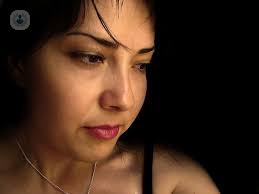

What is impulse control disorder?
Impulse control disorder (ICD) is a condition in which the sufferer is unable to control the impulses, temptations or urges that she or he experiences. It can be experiences as an isolated condition, or accompany other related or non-related psychological conditions. This disorder is extremely disruptive for individuals, their families and the community.

There are various types of ICD:
- Sexual compulsion: where the sufferer has increased urge in sexual thoughts and behaviour. This can increase exposure to STIs, risky personal safety issues, emotional welling and social stigma.
- Internet addiction: the most recent form of ICD, this has been identified as excessive use of the internet, social media platforms, gambling, or porn sites, among others.
- Compulsive shopping: characterized by an irresistible urge to shop beyond one’s economic means.
- Pyromania: uncontrollable urge to start fires, often at the risk of safety to oneself, others and property.
- Intermittent explosive disorder (IED): repeated and disproportionate explosive outburst of aggression.
- Kleptomania: an uncontrollable impulse to steal for pleasure.
- Trichotillomania: sufferers experience an irresistible urge to pull out their own hair from the scalp, eyebrows and lashes. A ralated condition can be skin picking, where the sufferer picks at their own skin to the point of self-harm.
What are the symptoms of this condition?
The specific symptoms vary according to the type of ICD the person experiences, but in all cases, the phases of ICD are as follows:
- Impulse
- Growing tension
- Pleasure upon acting
- Relief and guilt (may or may not be present)
Causes of impulse control disorder
Impulse control disorder often accompanies other disorders like ADHD, OCD, depression or anxiety. The causes have not yet been specified but are thought to be a combination of genetic and external factors such as abuse neglect in childhood. The ability to control impulses is found in the frontal cortex. The disorder often peaks in mid-adolescence.
How can impulse control disorder be managed?
ICD is a serious condition that usually needs the help of an experienced specialist. Together, they can work out a treatment, which takes into account the patients background, lifestyle, and needs.
What is the treatment?
The treatments for ICD can be pharmaceutical psychosocial or a combination of the two. Psychosocial treatments include:
- Cognitive behavioural therapy (CBT)
- Systematic desensitisation
- Aversive therapy
- Covert sensitization
- Stimulus control
- Cognitive restructuring
